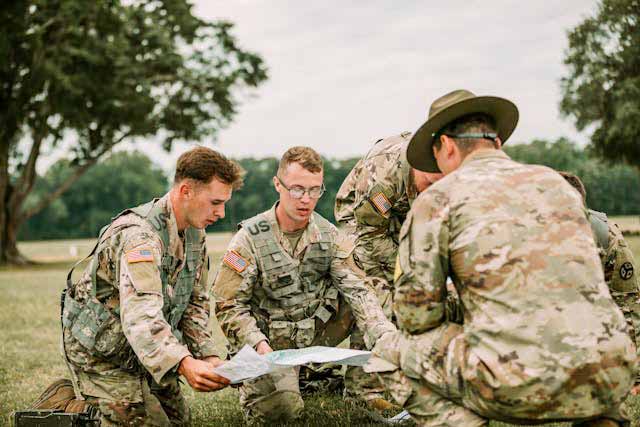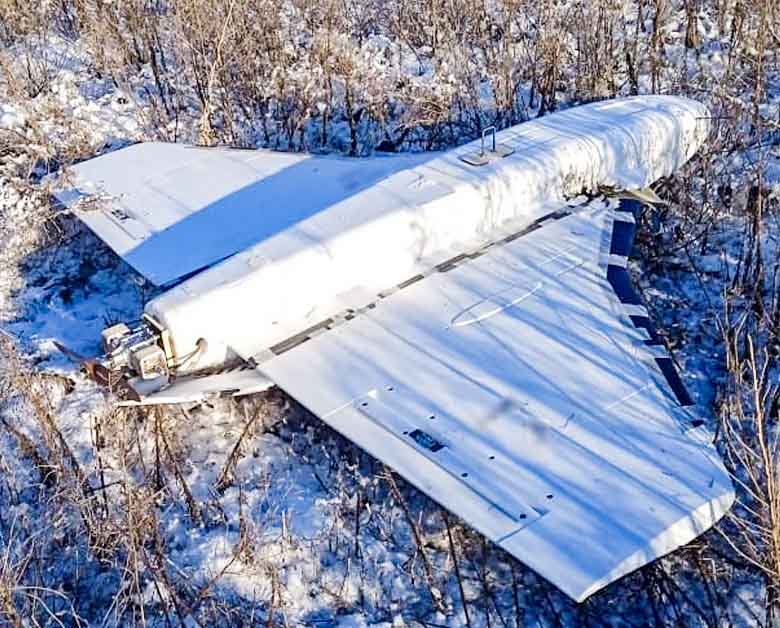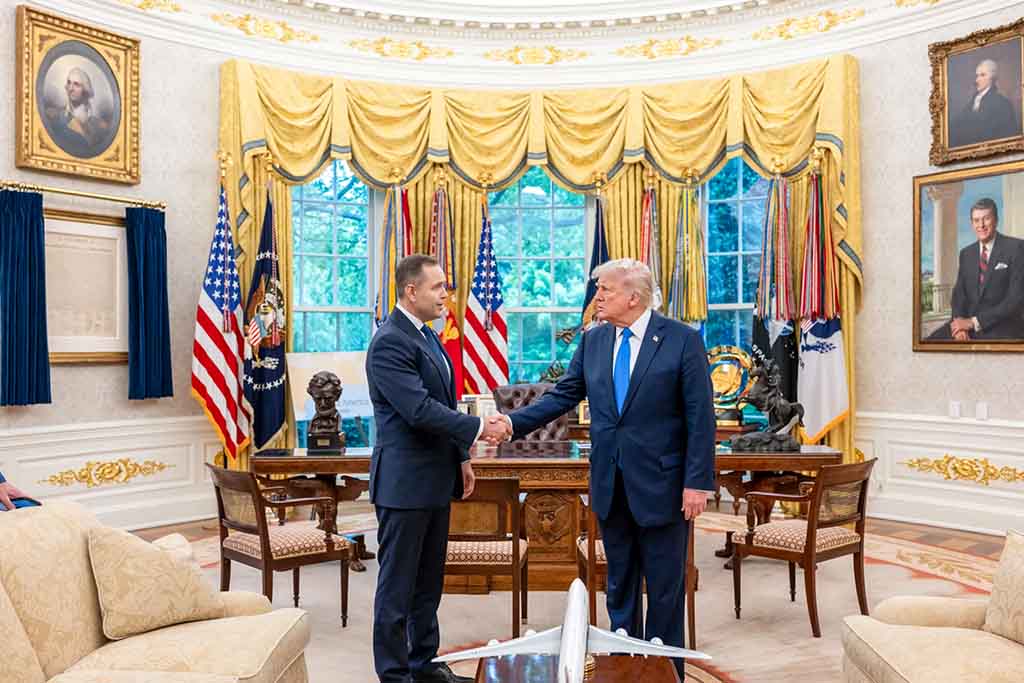The latest CBOS poll for Dziennik Gazeta Prawna shows that nearly two-thirds (63.8%) of Poles believe that in the event of a Russian armed attack on Poland, the United States would provide military support. Only about 25.8% of respondents (out of the 1,000-person survey) do not expect such assistance.
This statement demonstrates how deeply rooted the belief in the American security umbrella is among the Poles — perhaps more deeply than geopolitical realism would dictate. It raises the question: is this a realistic hope or a strategic illusion? And what does it mean for Poland in the current global system?
What Does the Survey Say—and Why Does It Matter?
Some details:
- Respondents with right-wing views have the strongest conviction about US aid – as many as 71.4% of this group expect US intervention.
- An equally high level of optimism was recorded among the youngest age groups – over 70% of young people say “yes, they will help.”
- In turn, skeptics are most prevalent among middle-aged groups, among people very interested in politics and among the left-wing electorate – where the percentage of "I don't count on help" reaches over 30%.
On the other hand, the overall assessment of Polish-American relations is no longer enthusiastic. In April 2025, CBOS reported that 52% of Poles believed that Polish-US relations were "neither good nor bad," with only 31% viewing them positively . Compared to data from two years ago—when positive assessments of the relationship reached 80%—there has been a dramatic decline.
This is a discrepancy: on the one hand, a strong belief in American guarantees, and on the other, a cool, practical assessment of the relationship. Who is right?
Alliances Are Not Automatic Obligations
The notion that "the US will come to our rescue" is a common theme in public discourse. But alliances—even formal ones—never guarantee an immediate military response in every situation. Strategic conditions, cost-effectiveness, interests, and political and military readiness must be present.

Source: Pexels, Foto: Art Guzman
The famous Article V of the North Atlantic Treaty (signed in Washington in 1949), upon which the entire Western security system rests, contains a clause that makes it not an automatic "war" button, but rather a political obligation to consider a response. It does not automatically mandate immediate military defense. Its key commitment to its signatory allies is to "take such action as it deems necessary . "
From a geopolitical perspective, Poland cannot rely solely on foreign support. US intervention would require analysis of factors such as mobilization time, logistics, strategic resources, escalation risk, and the global context. Guarantees are important as a deterrent—but they cannot replace domestic force.
A Signal to Russia and NATO
This level of public confidence—that our allies will not abandon us—conveys two messages:
- To Russia — that any potential aggression would be met with resistance not only from Poland but also from a potentially great power overseas. This could act as a deterrent—if Russia deems the threat real.
- To NATO/the United States — that Poles expect concrete support and will hold their allies accountable on a symbolic and political level (and perhaps even electoral) – if that has any meaning for them.
However, these signals are surrounded by considerable uncertainty—will the United States be willing to engage in military action in Central Europe at a critical juncture? That depends on its global interests (China, the Middle East, the Pacific Rim), the costs, and the anticipated strategic gain.
Poland in An Ambiguous Position
For Poland, this is a kind of request for guarantees—but also a risk of strategic dependence. If the perception of support becomes the foundation of security policy and dominates domestic efforts, it could lead to abandonment of building its own defense capabilities.
In the 21st century, an alliance is a partnership, not an umbrella of invulnerability. Poland must be able to act autonomously when its allies' support fails or is delayed.
Reflections and Warnings from Experts
Jacek Bartosiak, author of numerous strategic analyses and a journalist, is a prominent figure in the geopolitical debate . His perspective may shed light on what it means for Poles to believe in US support.
In one of the interviews, Bartosiak said:
If Kyiv fell in 2022, Poland would find itself under enormous pressure – military, political and psychological… Moscow would demand a redefinition of the security order in Europe, limiting NATO’s presence in the region… In practice, it would be a return to the pre-1989 spheres of influence.
This is a warning: that the fall of Ukraine would redirect the front so close to Poland that the alliance testing would become a daily drama. Bartosiak also suggested that war is no longer fought in the classical sense—that "the new 'atom' is already here" in the form of algorithms, data, and digital systems.
In turn, in an interview with "Polityka", he emphasized his skepticism about the continued involvement of the USA in Central and Eastern Europe:
Trump believes that the United States has fallen victim to globalized trade (...) Americans imposed their own rules, paying for it militarily and guaranteeing security. Trump's circle has concluded that this is an outdated strategic approach.
In other words: according to Bartosiak, Washington's decreasing willingness to shoulder the burden of global leadership and the role of hegemon may weaken America's determination to conduct permanent military missions outside its region.
Bartosiak often advocates for Poland to build a "counterforce"—not merely expecting support but creating balance itself. In his view, the key is the ability to engage in comprehensive systemic, cyber, information, and logistical operations—not just traditional armed forces.
Conclusions
- Public belief is not a guarantee of action. A high level of confidence in American support is valuable psychological capital, but it does not translate into actual military capabilities or political guarantees. Poland cannot base its defense solely on allied promises.
- Strategic realism must be matched by aspirations. Security policy may assume a "magical" layer—that allies might emerge—but it must also ensure a "mechanical" layer—that one's own defense capabilities are the foundation. The problem arises when the "magical" layer is treated as a foundation. We, as a nation, should have known since 1939 how much Western guarantees are worth.
- America's Changing Role. Maintaining an American presence in Europe requires that US interests remain strategically justified. America's global priorities (e.g., Asia, rivalry with China) may result in Europe—and particularly Central and Eastern Europe—being treated as peripheral.
- Russia is watching — and calculating. For Moscow, this is also a test: whether Poles' faith in the role of the US will be transformed into real reactions and whether the potential subordination of the countries of the region can be delayed.
- A New Polish Strategy Needed. Poland must think through its own strategy, not just expect external guarantees. It must invest in technology, digitalization, intelligence capabilities, and hybrid defense—so that it can be a partner to its allies, not just a beneficiary.
In Conclusion
The CBOS poll, on the one hand, reveals a public confidence—not entirely justified in the current climate—in the US's role as a guarantor of Poland's security. On the other, it points to a discrepancy between the public's positive attitude and geopolitical analysts' pragmatic assessment of alliances. It demonstrates the strong—far too strong—belief in automatic US assistance in the event of a threat among Poles. It's time to wake up. At best, the US is pursuing policies that benefit the United States, not necessarily Poland.
In an era of shifting power balances, geopolitical shifts, and technological transformations, Poland needs not only hope—but a solid strategy. And this strategy must recognize that allied support may be delayed or limited. This is a Polish reality that must be accepted and adequately prepared for if we truly want to survive as a sovereign and effective state.











